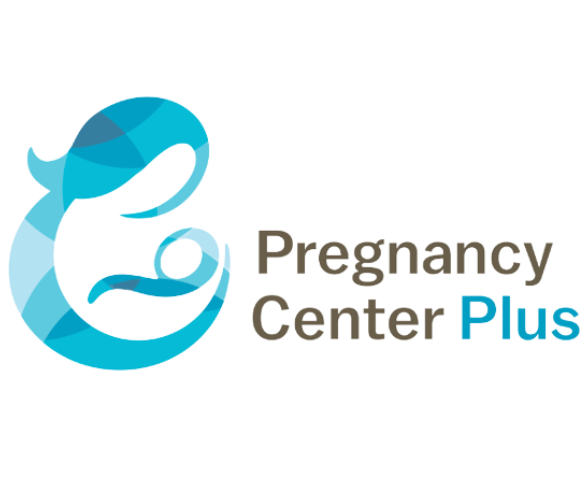We offer testing for Chlamydia and Gonorrhea for men and women. Please do not urinate for 1 hour prior to test.
When people become sexually active, pregnancy is often the greatest concern. Most people do not consider other physical and emotional risks associated with sexual activity. The truth is, women are most likely to get pregnant when they are ovulating, which is only a few days during the menstrual cycle. Anyone is at risk of contracting or passing on a sexually transmitted infection (STI) during every sexual encounter.
If you are currently sexually active or considering entering into a sexual relationship, it is very important to be fully educated beforehand. The decision to become sexually active is a very important one, and you should have accurate information. We are here to help you be informed.
Sexually Transmitted Infections are simply known as STIs. An STI is an infection which is passed from one person to another during sexual activity. STIs can lead to sexually transmitted diseases (STDs). These infections can be spread by vaginal, oral, and/or anal sex; and some may even be spread through hand to genital contact.
Every year, millions of people get a sexually transmitted infection or disease. You are vulnerable to STIs at any age and at any time. You can have an STI and have no symptoms for weeks, months, and possibly years, yet still be passing it to your sexual partners.
There is no form of birth control that comes with a 100% guarantee against contracting an STI. The only guaranteed way to avoid pregnancy or a sexually transmitted infection is to practice sexual abstinence (abstain from any sexual contact) while single. If you marry, select a partner who is not infected with an STI/STD and remain sexually faithful during marriage. All other methods leave you at risk.
Chlamydia is a common sexually transmitted infection (STI) caused by bacteria. It can spread during vaginal, oral, and/or anal sexual contact and can affect women and men. Many people have no symptoms. Some women might have an abnormal vaginal discharge or a burning when urinating. If not treated, the infection can cause a more serious infection called Pelvic Inflammatory Disease (PID) in women. PID can cause permanent damage to the Fallopian tubes, uterus, and tissues surrounding the ovaries leaving a woman at risk for ectopic pregnancy (pregnancy outside of the uterus) or sterility. Men infected with Chlamydia may also have no symptoms, may carry the infection, and unknowingly infect their partners. Men may have a discharge of pus from the penis and a burning sensation with urination as symptoms of this infection. The more sex partners a person has, the greater the risk of a Chlamydia infection. Chlamydia can be treated and cured with antibiotics.
Gonorrhea is a common STI caused by bacteria. Gonorrhea is spread through vaginal, oral, and/or anal sex. Any sexually active person can be infected with Gonorrhea. In women, the symptoms are absent or mild, but untreated Gonorrhea can cause permanent health problems like Pelvic Inflammatory Disease (PID). PID can cause severe abdominal pain, fever, and long-lasting pelvic pain. It can cause infertility or ectopic pregnancies (pregnancies outside of the uterus). In men, symptoms include a burning sensation when urinating or a white, yellow, or green discharge from the penis. It can also cause a painful condition of the testicles that can lead to infertility if untreated. Antibiotics are given to treat gonorrhea.
Hepatitis B is a serious disease caused by a virus and can cause lifelong infection, cirrhosis (scarring) of the liver, liver cancer, liver failure, and death. Hepatitis is spread by contact with the blood of an infected person and can be sexually transmitted. Many infected people have no symptoms. Others might have jaundice (yellow skin), fatigue, dark urine, abdominal pain, loss of appetite, or nausea. A vaccine is available for hepatitis B, but is only effective if received before an infection.
Herpes is an STI caused by the Herpes Simplex Viruses Type 1 (HSV-1) and Type 2 (HSV-2) Most people have few symptoms. Others have one or more blisters on or around the genitals, rectum, or mouth. The viruses are released from sores and from unbroken skin between outbreaks. In many adults, genital Herpes can cause painful, genital sores that reoccur. In addition, genital Herpes can cause potentially fatal infections in babies if the mother has sores at the time of delivery. Herpes is a virus, so there is no cure; however, there are some medications available to help lesson the frequency and/or duration of an outbreak.
Human Immunodeficiency Virus (HIV) is the virus that causes AIDS. This virus weakens the immune system and may be passed from one person to another through sexual contact or through blood. The most common way HIV is transmitted is by having vaginal, oral, and/or anal sex with an HIV-infected person, sharing needles or injection equipment with a drug user who is infected with HIV, or during birth from an HIV-infected woman passing the virus to her baby before or during birth or even through breastfeeding after birth. There are medications which can be used to prolong life, but there is no cure as of yet. Condoms are not 100% effective in eliminating the risk of HIV. The only way to know if you are infected is to be tested for HIV. You cannot rely on symptoms because they are similar to those of many other diseases in the early stages.
Human Papillomavirus (HPV) is one of the most common STIs. Both women and men can get this disease. It is transmitted two ways: by skin-to skin contact and by contact with infected body fluids. Some people with HPV have warts on (or in) their genitals, but most people with HPV do not know they are infected. Most people who become infected will clear it on their own; however, some HPV viruses are “high-risk” types, which may lead to cancer of the cervix, vulva, vagina, anus, or penis. HPV is a virus which causes warts which may spread to the mouth through oral sex. There are over 100 types of HPV. There is no cure for HPV infections; however, there are vaccines which can protect against a few cancer causing types. In women, a Pap smear can detect HPV infections. All sexually active women should have regular Pap smears so that cervical cancer and other problems caused by HPV can be recognized and treated. Abnormal Pap smears and cervical cancer can by treated, but successful treatment depends on finding these problems early. Cancer of the penis is the greatest danger for men who contract HPV.
Syphilis is an STI caused by bacteria. Syphilis is passed by direct contact with a Syphilis sore. Sores occur mainly on the genitals, vagina, anus, lips, or in the rectum or mouth. Syphilis can spread through vaginal, oral, and/or anal sex. During the primary stage of Syphilis, one or more chancre sores may appear within 10 days-3 months of the infection. In the second stage, a rash may develop. The final stage can occur up to 30 years after the initial infection and is lethal. Without treatment, it may damage internal organs such as the brain, nerves, eyes, heart, blood vessels, liver, bones, and joints. The standard treatment of Syphilis is penicillin.
Tricomoniasis is caused by parasites which are spread through sexual activity. It is considered one of the most curable STIs. Symptoms for both women and men include discharge, genital irritation and painful urination. It can be cured with prescription medication.
Many STIs have no symptoms. Testing is the only way to know for sure if you have an STI. It is very important to get tested because some can cause serious health problems if left untreated. Also, having an STI makes you more likley to get other STIs, like HIV. It is best to find out as soon as possible so that you can take care of yourself and avoid infecting other people.
You can be tested at the following sites:
Pregnancy Center East
- Urine testing for Chlamydia and Gonorrhea
- No charge
- Call for appointment 513-321-3100
- Please do not urinate for 1 hour prior to arriving
Your family practice physician or Ob-Gyn
Cincinnati Health Department
- 3101 Burnet Ave, Cincinnati, OH 45220
- 513-357-7320
Good Samaritan Hospital
- 375 Dixmyth Ave, Cincinnati, OH 45220
- 513-862-2563

